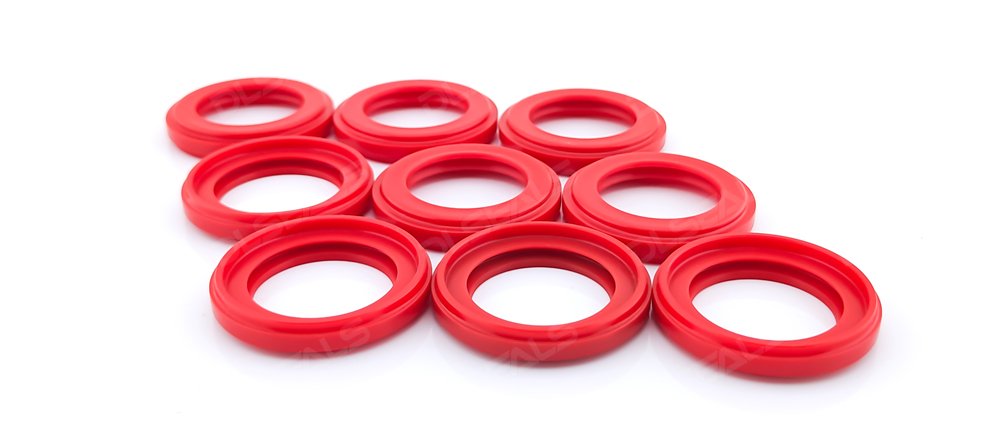In the world of industrial machinery and equipment, ensuring operational efficiency and reliability is paramount. One often overlooked yet crucial component in this regard is the rubber gasket. These seemingly simple devices play a vital role in preventing leaks, maintaining pressure, and protecting against contaminants. In this article, we will delve into how rubber gaskets work, their various applications, and why they are essential for keeping your equipment running smoothly.
Understanding Rubber Gaskets
Rubber gaskets are mechanical seals typically made from elastomeric materials. They are designed to fill the space between two or more mating surfaces, creating a barrier that prevents the escape of liquids, gases, or other substances. The elasticity and resilience of rubber make it an ideal material for gaskets, as it can compress and conform to irregular surfaces, ensuring a tight seal.
Key Benefits of Rubber Gaskets
1. Leak Prevention
One of the primary functions of rubber gaskets is to prevent leaks. In hydraulic and pneumatic systems, for example, leaks can lead to loss of pressure, reduced efficiency, and potential equipment failure. Rubber gaskets provide a reliable seal that keeps fluids and gases contained, ensuring optimal performance.
2. Durability and Longevity
Rubber gaskets are known for their durability and resistance to wear and tear. They can withstand harsh conditions, including extreme temperatures, chemical exposure, and mechanical stress. This longevity reduces the need for frequent replacements, saving time and maintenance costs.
3. Versatility
Rubber gaskets are highly versatile and can be used in a wide range of applications. They are commonly found in automotive engines, industrial machinery, plumbing systems, and household appliances. Their ability to adapt to different environments and requirements makes them an indispensable component across various industries.
4. Cost-Effectiveness
Compared to other sealing solutions, rubber gaskets are often more cost-effective. Their relatively low production cost, combined with their long lifespan and minimal maintenance requirements, makes them an economical choice for many applications.
Types of Rubber Gaskets
1. Nitrile Rubber (NBR)
Nitrile rubber is known for its excellent resistance to oil and fuel. It is commonly used in automotive and industrial applications where oil and fuel leaks are a concern.
2. EPDM Rubber
EPDM rubber is resistant to heat, ozone, and weather conditions. It is widely used in outdoor and automotive applications, such as weatherstripping and sealing of windows and doors.
3. Silicone Rubber
Silicone rubber gaskets can withstand a broad temperature range, making them ideal for applications involving extreme heat or cold. They are often used in food processing, medical devices, and electronics.
4. Viton Rubber
Viton rubber is highly resistant to chemicals, oils, and acids. It is used in demanding environments, such as chemical processing plants and aerospace applications.
Ensuring Proper Gasket Performance
To maximize the effectiveness of rubber gaskets, proper installation and maintenance are essential. Here are a few tips to ensure optimal performance:
1. Proper Installation
Ensure that the gasket is correctly aligned and seated between the mating surfaces. Over-tightening or under-tightening the bolts can compromise the seal, leading to leaks.
2. Regular Inspections
Periodically inspect gaskets for signs of wear, damage, or degradation. Early detection of issues can prevent leaks and prolong the life of the gasket.
3. Environmental Considerations
Choose the right type of rubber gasket for your specific application and environmental conditions. Factors such as temperature, pressure, and chemical exposure should guide your selection.
4. Lubrication
In some applications, applying a suitable lubricant can help reduce friction and wear on the gasket, enhancing its lifespan and performance.
Conclusion
Rubber gaskets are small but mighty components that play a crucial role in maintaining the integrity and efficiency of various systems. By preventing leaks, ensuring durability, and offering versatility, they help keep your equipment running smoothly. Understanding their benefits, types, and proper maintenance can significantly enhance the performance and reliability of your machinery. Invest in high-quality rubber gaskets and follow best practices to seal the leak and keep your operations running efficiently.
Post time: Jun-03-2024

